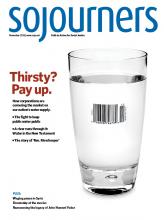EVERY SUMMER brings the end of the world. But not since 1998’s Deep Impact and Armageddon both threatened the end of the world with objects from space has there been such apocalypse redundancy in summer blockbusters: This year, class wars, real wars, ecological exhaustion, aliens, and zombie viruses destroyed our planet in as many different ways.
In her excellent e-book The Zombies are Coming!, Kelly J. Baker reminds us that apocalyptic fantasies have been part of the popular American imagination since at least the Puritan hellfire sermon. Even without a common religious narrative to guide them, end-of-the-world stories mostly function as a form of cultural critique and utopian longing. We can only imagine a desired future out of the ashes of the utterly destroyed present. In other words, things are going to have to get a lot worse before they get better.
If Baker is right that we seize on apocalyptic fantasies both to express a deep feeling that something is very wrong with our current state of affairs and to imagine some better alternative, then this summer’s world-ending movies display a profound lack of imagination. Most of them are not even particularly good at conceiving the end of the world, and none of them offer us a vision of how things might be different.
After Earth, for example, is more an overblown coming-of-age story than an apocalyptic thriller. The film follows Kitai (Jaden Smith) as he is guided via walkie-talkie by his wounded father (Will Smith) across an unknown planet. The planet turns out to be Earth 1,000 years after humans have high-tailed it to outer space. But since we never learn why humans had to leave, the apocalyptic frame feels like little more than an excuse to raise the stakes of Kitai’s journey and a chance to show off some fantastic technology. Kitai’s array of super-cool gadgets pretty much guarantees the creatures he meets will have to be more menacing than anything the old Earth could manufacture. The few glimpses we get of humanity’s new planet suggest a post-racial melting pot where everyone speaks a little Chinese and a lot of English and has a preference for flowing linen garments and nautical decoration schemes. I suppose this is a vision of a better tomorrow, but it felt more like a futuristic Pier One ad.
Read the Full Article

